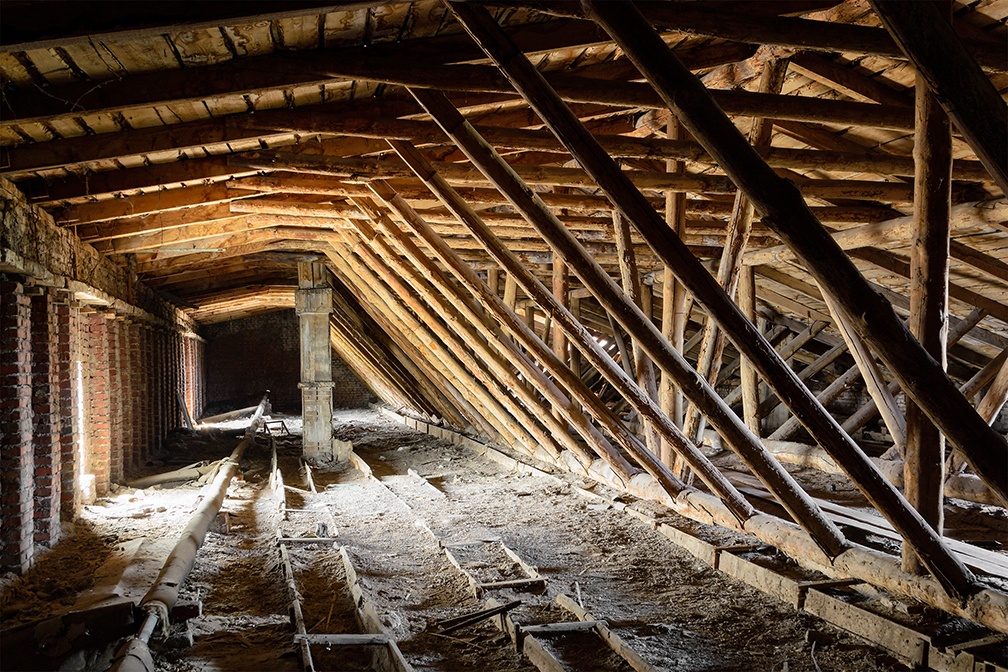 Are you a fan of homes with a bit more character than newer, modern designs? Whether in pristine condition or more of a “fixer upper,” older homes are incredibly popular in cities across the country. However, there are some key factors to consider if you’re thinking about buying a home built decades ago before modern standards were enforced.
Are you a fan of homes with a bit more character than newer, modern designs? Whether in pristine condition or more of a “fixer upper,” older homes are incredibly popular in cities across the country. However, there are some key factors to consider if you’re thinking about buying a home built decades ago before modern standards were enforced.
Let’s take a look at three key design issues that you will need to be aware of if you’re thinking about buying an older house.
Old Electrical Designs Can Be A Significant Fire Hazard
No matter when a home was built, it’s almost guaranteed to have electrical wiring running through walls to supply rooms with lighting and power outlets. However, if the wiring was run in decades past it may be with older cords that are less able to withstand a modern workload. A quick check of the circuit-breaker panel or fuse box and the wires leading from it can give an idea just how old the wiring is. As older designs can be a fire hazard, you will want to ensure the wiring is up to date.
Poor Plumbing Design Can Lead To Rot Or Worse
Plumbing can also be an issue in older houses – especially those in states that experience a cold winter. Water pipes tend to expand and contract due to temperature, which can lead to stress and leaks over time. Moreover, even though older pipes are typically made of metal, they can still wear out. The last thing you need is to wake up to a flooded basement, so be sure to have the plumbing professionally inspected.
Is The Roof And Insulation Strong Enough?
While the roof might look solid from the outside, it may not be as well put together on the inside. Even the smallest of holes or leaks in roof membrane can wreak havoc on the structural integrity of the roof. It’s worth spending some time in the attic to inspect the inside of the roof, the condition of the insulation and how well the entire structure is holding up.
While the above list might sound a bit scary, it isn’t meant to turn you away from buying an older character home. If you’re diligent in checking out the home’s history and invest in a professional inspection, you’ll stay safe. When you’re ready to explore character home options in the local area, contact our local real estate professional.
 Are you thinking about buying a new house, condo or apartment? Whether you are upgrading, downsizing or investing, if you intend on borrowing the funds you’ll need to be pre-approved for a mortgage. In today’s blog post we’ll explore mortgage pre-approval and why this should be one of your first steps in buying a new home.
Are you thinking about buying a new house, condo or apartment? Whether you are upgrading, downsizing or investing, if you intend on borrowing the funds you’ll need to be pre-approved for a mortgage. In today’s blog post we’ll explore mortgage pre-approval and why this should be one of your first steps in buying a new home. Are you interested in expanding your investment portfolio with hard, long-term assets that are almost certain to grow in value? If so, you will want to consider investing in real estate. Let’s take a look at how you can get started with real estate investing in just three easy steps.
Are you interested in expanding your investment portfolio with hard, long-term assets that are almost certain to grow in value? If so, you will want to consider investing in real estate. Let’s take a look at how you can get started with real estate investing in just three easy steps. Whether you’re tired of renting, need more space or want to make an upgrade, buying your first home is the solution. However, if you have never participated in the market before it can be a bit daunting at first. Let’s explore a few useful tips that are helpful for first-time homebuyers who are new to the process of buying real estate.
Whether you’re tired of renting, need more space or want to make an upgrade, buying your first home is the solution. However, if you have never participated in the market before it can be a bit daunting at first. Let’s explore a few useful tips that are helpful for first-time homebuyers who are new to the process of buying real estate. Whether you’re just out of college, recently married or simply haven’t jumped into the market yet, buying your first home is an exciting prospect. It can also be an expensive one, which is why most people will take out a mortgage to help finance the cost.
Whether you’re just out of college, recently married or simply haven’t jumped into the market yet, buying your first home is an exciting prospect. It can also be an expensive one, which is why most people will take out a mortgage to help finance the cost. You’ve scoured the new home listings, been to all the open houses and have finally found the home of your dreams. It is now time to draft an offer and begin the negotiation process. Below we’ll share four mistakes that you will want to avoid when making an offer on your dream home.
You’ve scoured the new home listings, been to all the open houses and have finally found the home of your dreams. It is now time to draft an offer and begin the negotiation process. Below we’ll share four mistakes that you will want to avoid when making an offer on your dream home. You’ve toured through a number of listings, attended all the open houses and have found your potential new dream home. Now the hard part begins, especially if you’re working against other buyers who are keen on getting the same home as you. Let’s take a look at three tricks that you can use to make sure the bid you submit on a home is the one that wins.
You’ve toured through a number of listings, attended all the open houses and have found your potential new dream home. Now the hard part begins, especially if you’re working against other buyers who are keen on getting the same home as you. Let’s take a look at three tricks that you can use to make sure the bid you submit on a home is the one that wins. The negotiations are over. The seller has accepted your bid and the paperwork has been signed. Shortly, you’ll be handed the keys to your new home and you can start moving in. But of course, the work doesn’t end after the real estate closing process. In fact, it’s just beginning! In today’s article, we’ll share a few essential tasks that you’ll want to get to work on after the closing process is over.
The negotiations are over. The seller has accepted your bid and the paperwork has been signed. Shortly, you’ll be handed the keys to your new home and you can start moving in. But of course, the work doesn’t end after the real estate closing process. In fact, it’s just beginning! In today’s article, we’ll share a few essential tasks that you’ll want to get to work on after the closing process is over. At some point in their lives, every renter thinks about home ownership and whether or not it’s worth it. Let’s explore the top 5 reasons why young individuals prefer the idea of owning a home over renting.
At some point in their lives, every renter thinks about home ownership and whether or not it’s worth it. Let’s explore the top 5 reasons why young individuals prefer the idea of owning a home over renting. Buying a home for the first time? One of the key considerations you’ll need to make is just how much ‘house’ you want to buy. While going minimal might seem like a good idea to save on costs, having a smaller living space can end up cramping your lifestyle in many ways. Let’s take a look at three great reasons why your first home should be roomy, spacious and luxurious.
Buying a home for the first time? One of the key considerations you’ll need to make is just how much ‘house’ you want to buy. While going minimal might seem like a good idea to save on costs, having a smaller living space can end up cramping your lifestyle in many ways. Let’s take a look at three great reasons why your first home should be roomy, spacious and luxurious.